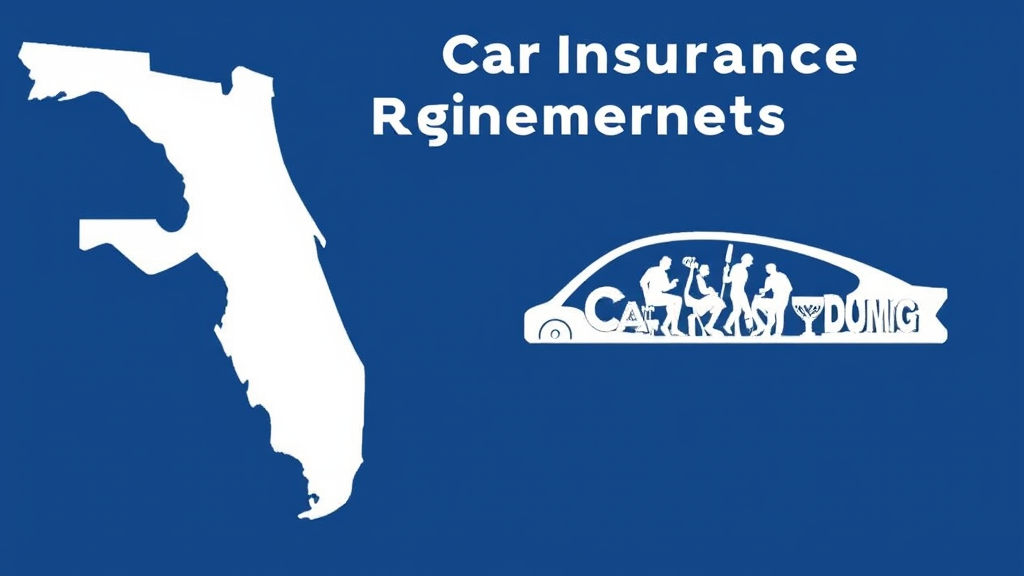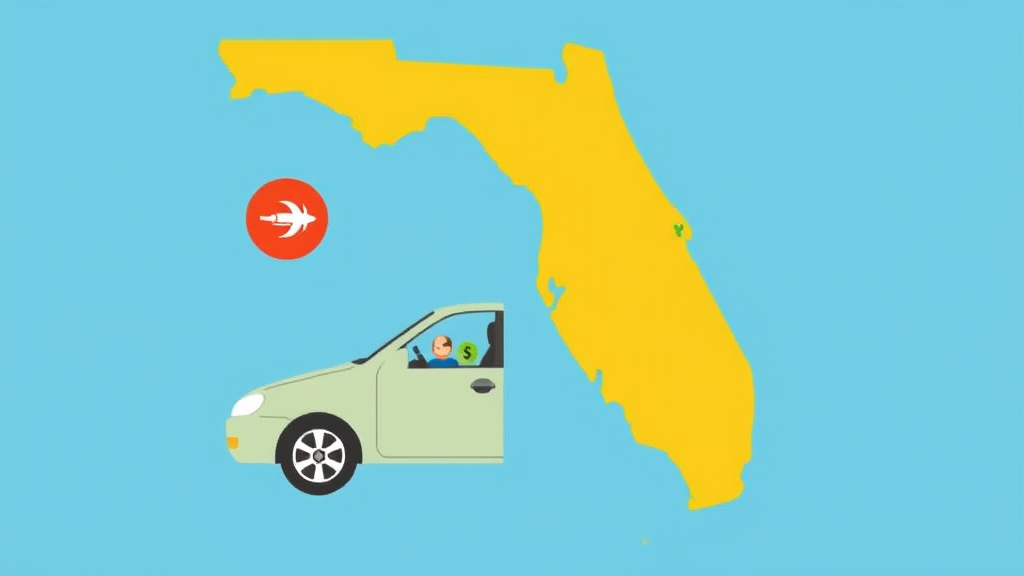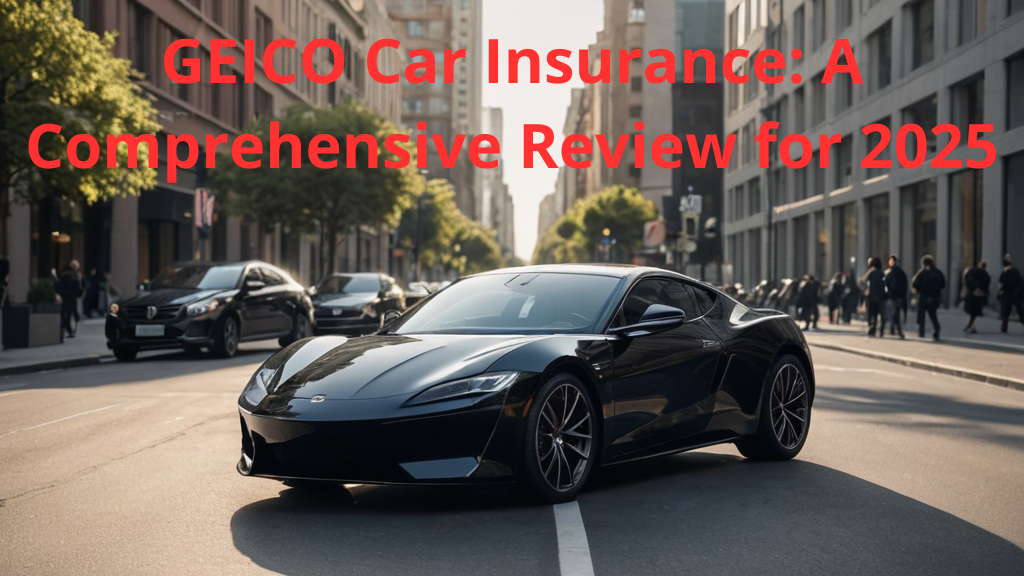When it comes to driving in Florida, securing the right car insurance is not just a legal requirement; it’s a crucial step towards protecting yourself, your passengers, and your assets.
The Sunshine State, with its unique driving conditions and diverse population, presents a distinct landscape for auto insurance. As we delve into 2025, understanding the nuances of Florida car insurance becomes even more vital for both new residents and long-time drivers. This comprehensive guide aims to simplify the process, offering insights into how to shop car insurance Florida effectively, find affordable coverage, and leverage various savings opportunities. We’ll explore everything from mandatory requirements and average costs to factors influencing your premiums and the best strategies for securing a policy that fits your needs and budget. Our goal is to empower you with the knowledge to make informed decisions, ensuring you’re well-protected on Florida’s roads.
Florida Car Insurance Requirements: What You Need to Know in 2025

- Personal Injury Protection (PIP): $10,000 per accident. This coverage pays for 80% of your medical expenses, 60% of lost wages, and 100% of replacement services (e.g., childcare, housekeeping) up to the policy limit, regardless of fault.
- Property Damage Liability (PDL): $10,000 per accident. This covers damages you cause to another person’s property, such as their vehicle or other physical structures.
Penalties for Non-Compliance
Self-Insurance as an Alternative
The Cost of Car Insurance in Florida: What to Expect in 2025

- High Population Density and Tourism: More drivers on the road, especially in popular tourist areas, lead to a higher likelihood of accidents.
- Weather-Related Claims: Florida is highly susceptible to hurricanes and tropical storms, leading to frequent comprehensive claims for flood damage, wind damage, and falling objects.
- High Rates of Uninsured Drivers: A higher percentage of uninsured motorists in Florida can drive up costs for insured drivers, as insurers need to account for potential losses from accidents involving these drivers.
- Fraudulent Claims: The state has historically faced challenges with insurance fraud, particularly in the PIP system, which contributes to higher premiums.
- Litigation Trends: While the no-fault system aims to reduce lawsuits, Florida still sees a considerable number of legal disputes related to car accidents, which can increase insurer costs.
Factors Influencing Your Individual Car Insurance Rates
- Driving Record: A clean driving record with no accidents or traffic violations is one of the most significant factors in securing lower rates. Speeding tickets, DUIs, and at-fault accidents can substantially increase your premiums. For example, a DUI can increase rates by approximately 53%, and an at-fault accident by 35%.
- Age and Gender: Younger drivers, particularly teenagers, typically face the highest premiums due to their lack of experience and higher statistical likelihood of accidents. Rates generally stabilize around age 25 and tend to decrease for drivers with clean records from age 30 onwards. Historically, men have paid more than women, though this gap narrows with age.
- Location (ZIP Code): Car insurance rates vary significantly by city and even by ZIP code within Florida. Areas with higher population density, higher crime rates (leading to more theft and vandalism claims), or more frequent accidents will generally have higher premiums. For instance, living in Miami or Tampa might result in higher rates compared to Orlando or St. Petersburg.
- Credit Tier: In Florida, your credit-based insurance score is a crucial factor. Drivers with excellent credit typically pay significantly less (around 20% below average), while those with poor credit can pay substantially more (up to 116% above average).
- Vehicle Type: The make, model, age, safety features, and repair costs of your vehicle all play a role. More expensive cars, sports cars, or vehicles with higher theft rates usually cost more to insure. Conversely, vehicles with strong safety ratings and lower repair costs, like a Honda Odyssey or Toyota Prius, might have lower premiums.
- Coverage Limits and Deductibles: Opting for higher coverage limits and lower deductibles will increase your premium, as the insurance company takes on more risk. Conversely, choosing lower coverage limits and higher deductibles can reduce your premium, but it means you’ll pay more out-of-pocket in the event of a claim.
How to Shop Car Insurance Florida: Finding the Best Deals in 2025

- Compare Quotes from Multiple Insurers: This is perhaps the most critical step. Do not settle for the first quote you receive. Different insurance companies use varying algorithms and risk assessments, leading to significant price differences for the same coverage. Websites like MarketWatch and Bankrate provide tools to compare quotes from various providers.
- Understand Your Coverage Needs: While meeting the minimum requirements is essential, assess your personal situation. Do you need comprehensive and collision coverage for your vehicle? What about uninsured/underinsured motorist coverage, given Florida’s high rate of uninsured drivers? Tailoring your policy to your actual needs can prevent overpaying for unnecessary coverage or being underinsured in a critical situation.
- Inquire About Discounts: Insurance companies offer a wide array of discounts that can significantly reduce your premium. Common discounts include:
- Multi-Policy Discount: Bundling your car insurance with home, renters, or other policies from the same insurer.
- Safe Driver Discount: For drivers with a clean record, often tracked through telematics programs (e.g., Drivewise, RightTrack®).
- Good Student Discount: For young drivers who maintain good academic grades.
- Low Mileage Discount: For those who drive less than a certain number of miles annually.
- Anti-Theft Device Discount: For vehicles equipped with anti-theft systems.
- Paid-in-Full Discount: For paying your annual premium upfront.
- Loyalty Discount: For long-term customers.
- Electronic Signature/Paperless Discount: For managing your policy online.
- 4.Maintain a Good Driving Record: As highlighted earlier, a clean driving history is paramount. Avoid traffic violations and accidents to keep your rates low.
- Improve Your Credit Score: If your credit score is not optimal, working to improve it can lead to lower insurance premiums in the long run.
- Choose the Right Vehicle: When purchasing a new car, research insurance costs for different models. Vehicles with high safety ratings, lower repair costs, and less appeal to thieves generally have lower insurance premiums.
- Adjust Deductibles: Increasing your deductible (the amount you pay out-of-pocket before your insurance kicks in) can lower your premium. However, ensure you can comfortably afford the higher deductible if you need to file a claim.
- Consider Usage-Based Insurance: Programs like Drivewise (Allstate) or RightTrack® (Liberty Mutual) use telematics devices or mobile apps to monitor your driving habits (e.g., mileage, braking, acceleration). Safe driving can earn you significant discounts.
Related Keywords and Concepts for Florida Auto Insurance
- Florida auto insurance minimum requirements: Essential for understanding the legal baseline.
- Cheap car insurance quotes no deposit Florida: A common search for those seeking immediate and affordable options
- Affordable car insurance for young drivers Florida: Addresses a specific demographic with typically higher rates.
- Best car insurance rates in Florida: Focuses on value and competitive pricing.
- How to save on car insurance in Florida: Practical advice for reducing costs.
- Florida no-fault auto insurance explained: Crucial for understanding the state’s unique system.
- Car insurance discounts Florida: Specific savings opportunities.
- Compare car insurance Florida: Emphasizes the importance of shopping around.
- Online car insurance quote Florida: Convenience and speed in obtaining estimates.
- SR22 auto insurance Florida: Relevant for drivers with serious traffic violations requiring proof of financial responsibility.
- Bodily Injury Liability (BIL) Florida: While not mandatory, highly recommended coverage.
- Uninsured/Underinsured Motorist (UM/UIM) Florida: Protects you if the at-fault driver has no or insufficient insurance.
- Collision Coverage Florida: Covers damage to your own vehicle in an accident.
- Comprehensive Coverage Florida: Covers non-collision damage to your vehicle.
- Florida insurance laws: Broader legal framework governing insurance in the state.
- Average car insurance premium Miami/Tampa/Orlando: Localized cost information.
- Florida car insurance companies: Specific providers operating in the state.




